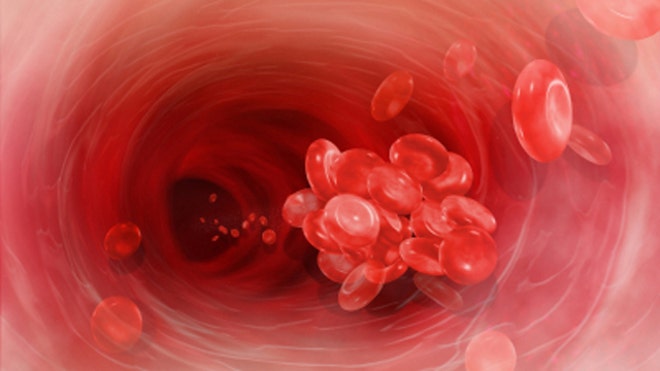Vein grown from stem cells saves 10-year-old girl
June 14, 2012Reuters
Doctors in Sweden have replaced a vital blocked blood vessel in a 10-year-old girl using the first vein grown in a lab from a patient's own stem cells.
The successful transplant operation, reported online in The Lancet medical journal on Thursday, marks a further advance in the search for ways to make new body parts.
It could open the door to stem cell-based grafts for heart bypass and dialysis patients who lack suitable blood vessels for replacement surgery, and the Swedish team said it is now working with an undisclosed company to commercialize the process.
"I'm very optimistic that in the near future we will be able to get both arteries and veins transplanted on a large scale," said Suchitra Sumitran-Holgersson, professor of transplantation biology at the University of Gothenburg, and a member of the team that performed the operation in March 2011.
The advantage of using tissue grown from a patient's own cells is that there is no risk of organ rejection and hence no need for lifelong immunosuppressive drugs.
Four years ago, a 30-year-old woman received the world's first transplant of a tailor-made windpipe, grown in a similar way by seeding a stripped-down donor organ with her own stem cells. Other such trachea operations have followed since.
The latest case involved a young girl with an obstructed hepatic portal vein, which drains blood from the intestines and spleen to the liver. Its blockage can be fatal.
The team from the University of Gothenburg took a 9 cm (3.5 inch) section of groin vein from a deceased donor and removed all the living cells, leaving just a protein scaffold tube. Stem cells extracted from the girl's bone marrow were then injected onto the tube and two weeks later the graft was implanted.
The new blood vessel immediately restored normal blood flow, the doctors said, although after a year it narrowed and a second stem cell-based graft was needed.
Martin Birchall and George Hamilton of University College London said in a commentary in The Lancet that the Swedish doctors had spared the young girl the trauma of having veins harvested from deep in her neck or leg and avoided the need for a liver transplant.
But they cautioned the technique now needed to be tested in clinical trials and developed into a straightforward quality-controlled production process.
Sumitran-Holgersson said her team had already simplified the process and was now able to harvest stem cells from blood rather than bone marrow. She aims to test the technique with arteries later this year.
"You are going to see more and more of these personalized grafts in future," she said in a telephone interview.
The university has also linked up with a Swedish company, which Sumitran-Holgersson declined to identify, to explore how to commercialize the technique. This could involve offering "off-the-shelf" scaffolds from which tailor-made blood vessels could then be built.
Around the world, scientists in the emerging field of regenerative medicine are working to engineer many different human organs and tissues in the lab, including lungs and hearts.
Building such complex organs is a lot more challenging than making blood vessels, however, since veins are relatively simple hollow structures with few engineering demands.

No comments:
Post a Comment